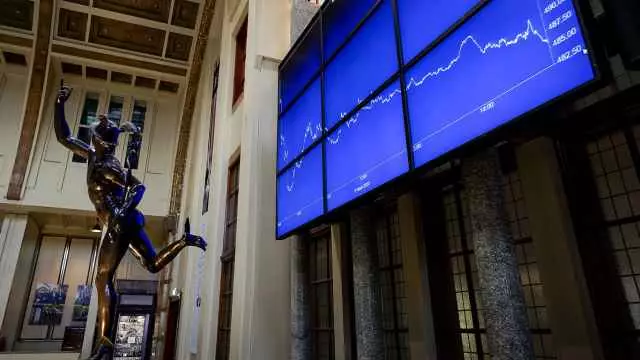
Financial business after Brexit partially flows from London to other European capitals. At the end of January, the average daily trading volume of companies from the countries of the European Union amounted to EUROEXT AMSTERDAM and Netherlands CBoe Europe and Turquoise Dutch Exchange ($ 11.2 billion) on the EUROEXT AMSterdam Exchange. This is four more times more than in December.
As a result, Amsterdam became the largest campaign in the euro. The volume of trading in London, who before January was an undisputed leader, sharply fell to 8.6 billion euros ($ 10.4 billion), according to CBoe Europe.
In agreement between the United Kingdom and the EU, the divorce that entered into force from January is practically no agreements on the financial services sector. Brussels refused to recognize most of British financial regulation systems, including on stock exchanges and electronic trading platforms, "equivalent" of their own. Therefore, in the first trading day, January 4, from London to EU countries have been translated transactions with euro shares by 6.5 billion to this day, trading in European shares on platforms such as Amsterdam Units CBoe Europe and Turquoise (it controls London Stock Exchange Group), almost did not work. But the organizers of trading in London, foreseen the absence of an agreement with the EU, prepared for moving.
A small increase in turnover in January was also recorded Paris and Dublin, as part of the trading moved from London to the Aquis and Liquidnet platforms, respectively.
The movement of trade speeds in the EU does not mean automatic reduction in a significant number of jobs in the financial industry of London, analysts and representatives of the sector say. The tax receipts will decrease depending on what the effect of business loss on trade in European shares will have on the profit of the Bid Organizers. Last year, the financial services sector paid almost 76 billion pounds sterling ($ 105 billion) in taxes.
"It is symbolic that London lost the status of the Chief Center for Trade in Shares of EU companies, but he has a chance to find his own niche on the trading market," says Anish Poir, Rosenblatt Securities analyst in London. - Managing funds will more care the level of liquidity and costs of carrying out transactions than exactly where they are executed - in London or Amsterdam. "
To compensate for the outflow, London allowed to carry out trading with shares of Swiss companies. Operations with papers of companies such as Nestlé and Roche, on the EU exchanges are now prohibited.
The financial sectors of Amsterdam became one of the first Brexit beneficiaries. The capital of the Netherlands also intercepted bidding with swaps and government bonds, which until January was usually walked in London. CBoe Europe intends to start in Amsterdam to be trading with derivatives in Amsterdam.
American Intercontinental Exchange also plans to translate into the Netherlands to bid permissions for carbon dioxide emissions (day turnover - 1 billion euros), although clearing operations will remain in London.
The United Kingdom and the EU are now negotiating financial services and intend to prepare a memorandum of understanding in March. However, special hopes for the fact that in a potential agreement, British systems will be recognized by European equivalent, do not feed in London. The EU makes a mistake without giving financial services to the UK equivalent status, separating it from the EU financial business "leads to market fragmentation," the chairman of the Bank of England Andrew Bailey stated on Wednesday.
He has repeatedly urged to give this status to all regulatory systems of Great Britain just as it was done on a temporary basis in the field of clearing and calculations on transactions.
Majtab Rahman, Managing Director for Europe in the consulting company Eurasia, however, believes that the British government is not very interested in obtaining equivalent status for its financial services sector. "They believe that his regulation by the Ministry of Finance and the Bank of England will be more efficient than from Brussels," he says.
Translated Mikhail Overchenko
